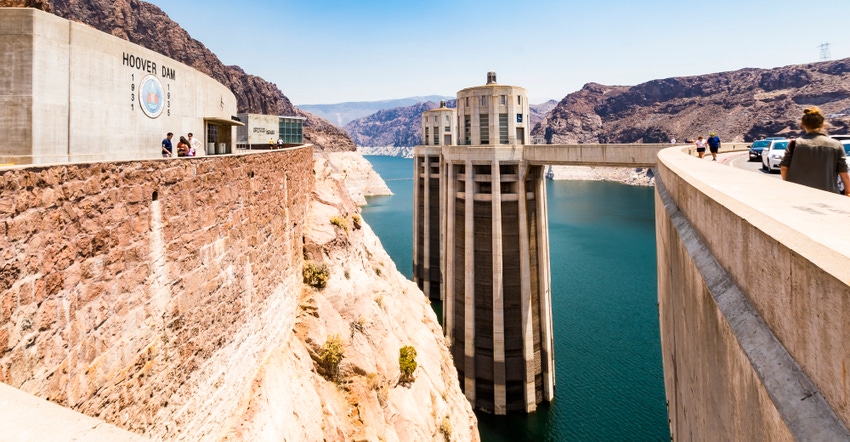
Westlands Water District wants to know if not now, when. In a season that will see California reservoirs fill and water flow freely to places like San Francisco and Los Angeles, and where skiers enjoyed over 50 feet of snow at Mammoth Mountain, what will it take for south-of-Delta farmers to receive a 100 percent allocation of Central Valley Project water?
Earlier today the Bureau of Reclamation increased its allocation of surface water to farmers south of the Delta to 65 percent, up from the 55-percent allocation announced in mid-March. The last full allotment south-of-Delta farmers received came in 2006.
In a statement from Westlands Water District, General Manager Thomas Birmingham was rightfully apoplectic about the decision, wondering aloud if ever the CVP would let water flow to farms as designed. Rhetorical as it may be given what we know to be the state of water politics these days, it’s still a legitimate question.
What happens with the rest of that water? Will the government just let it all flow out to the Pacific Ocean because sea levels aren’t rising fast enough? Does this mean we’ve reached groundwater sustainability in California and no longer need surface water as a conjunctive use? Has the Friant-Kern Canal stopped subsiding because farmers no longer continue to over-pump aquifers in the region?
In its statement released after the Reclamation announcement, Westlands points to snow water content of over 160 percent of the long-term average in the central Sierra Nevada. Birmingham went on to say in his statement that while he knows Reclamation staff understand the consequences of the decisions they make, nevertheless, these decisions will needlessly increase groundwater overdraft in severely-challenged basins.
Furthermore, as these decisions come later in the Spring each year, farmers are left to roll the dice on planting decisions for annual crops such as cotton and vegetables because federal water managers can’t make timely decisions on how much water they will deliver throughout the season.
Westlands recognizes publicly that Reclamation’s hands are tied by federal regulations like the Endangered Species Act and biological opinions of the courts. Reclamation’s latest announcement suggests the agency does, though it’s hands are tied.
At the end of its statement announcing the increased allocations, Reclamation says it is “currently engaged in several processes to improve its ability to meet the water supply needs of the CVP in an environmentally and economically sound manner (including) several efforts directed by the October 2018 Presidential Memorandum on Promoting the Reliable Supply and Delivery of Water in the West.”
Sadly, these bureaucratic processes take longer than necessary and had we had similar burdens when dams like Shasta, Hoover and Glen Canyon were dreamed up, we’d still be arguing whether to build them.
“After 2019, no one will be able to argue that water supply reductions for south-of-Delta CVP agricultural water service contractors are a result of hydrologic conditions,” said Birmingham in his written statement.
About the Author(s)
You May Also Like






